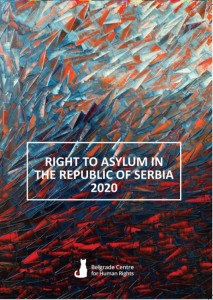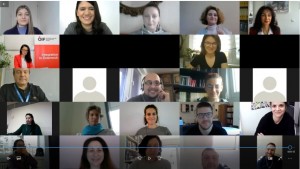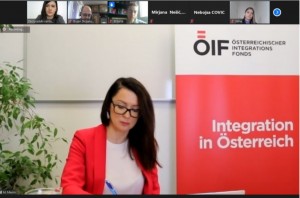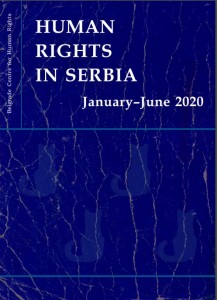BCHR Presents Its Right to Asylum in the Republic of Serbia 2020 Report
 The Belgrade Centre for Human Rights presented its annual report “Right to Asylum in the Republic of Serbia 2020” on Wednesday, 24 February 2021.
The Belgrade Centre for Human Rights presented its annual report “Right to Asylum in the Republic of Serbia 2020” on Wednesday, 24 February 2021.
The 2020 Asylum Report was informed by the experience of the BCHR’s legal and integration team in extending free legal aid to asylum seekers and persons granted asylum. It provides an overview of statistical data, as well as an analysis of the implementation of national law on asylum and other regulations relevant to the status of asylum seekers and refugees and their integration in Serbian society in 2020.
A total of 2,830 people expressed the intention to seek asylum in 2020, whereas 12,937 expressed such an intention in 2019. The drastic difference can be ascribed to the fact that the Ministry of Internal Affairs did not perform the registration of people intending to seek asylum
as it would have ordinarily, mostly due to the COVID-19 pandemic, rather than to a decrease in the number of migrants, asylum seekers and refugees.
 In 2020, 144 people applied for asylum with the Asylum Office, which upheld 29 applications. The number of applications it received in 2020 was also much lower than in 2019. Health protection measures introduced in response to COVID-19 led to substantial restrictions of the fundamental human rights of refugees and migrants living in Serbia.
In 2020, 144 people applied for asylum with the Asylum Office, which upheld 29 applications. The number of applications it received in 2020 was also much lower than in 2019. Health protection measures introduced in response to COVID-19 led to substantial restrictions of the fundamental human rights of refugees and migrants living in Serbia.
Migration was one of the main topics on the public agenda in 2020. The change in narrative led the BCHR team to analyse public discourse, including public opinion, and the proliferation of unverified theories and fake news, as well as widespread hate speech against migrants and refugees.
The Report was developed within the project “Support to Refugees and Asylum Seekers in Serbia”, which BCHR has been implementing with the support of the UNHCR Office in Serbia. As UNHCR’s implementing partner, BCHR has been providing legal aid to asylum seekers and persons granted international protection in Serbia since 2012.
The “Right to Asylum in the Republic of Serbia 2020” is available HERE.
The Report was presented by UNHCR Representative in Serbia Ms. Francesca Bonelli, BCHR Executive Director Ms. Sonja Tošković, the Report Editor Ms. Ana Trifunović, and the authors of the Report, Asylum and Migration Programme Legal Team Coordinator Mr. Marko Štambuk and Asylum and Migration Programme Coordinator Ms. Anja Stefanović.
The presentation of the Report is available here:












